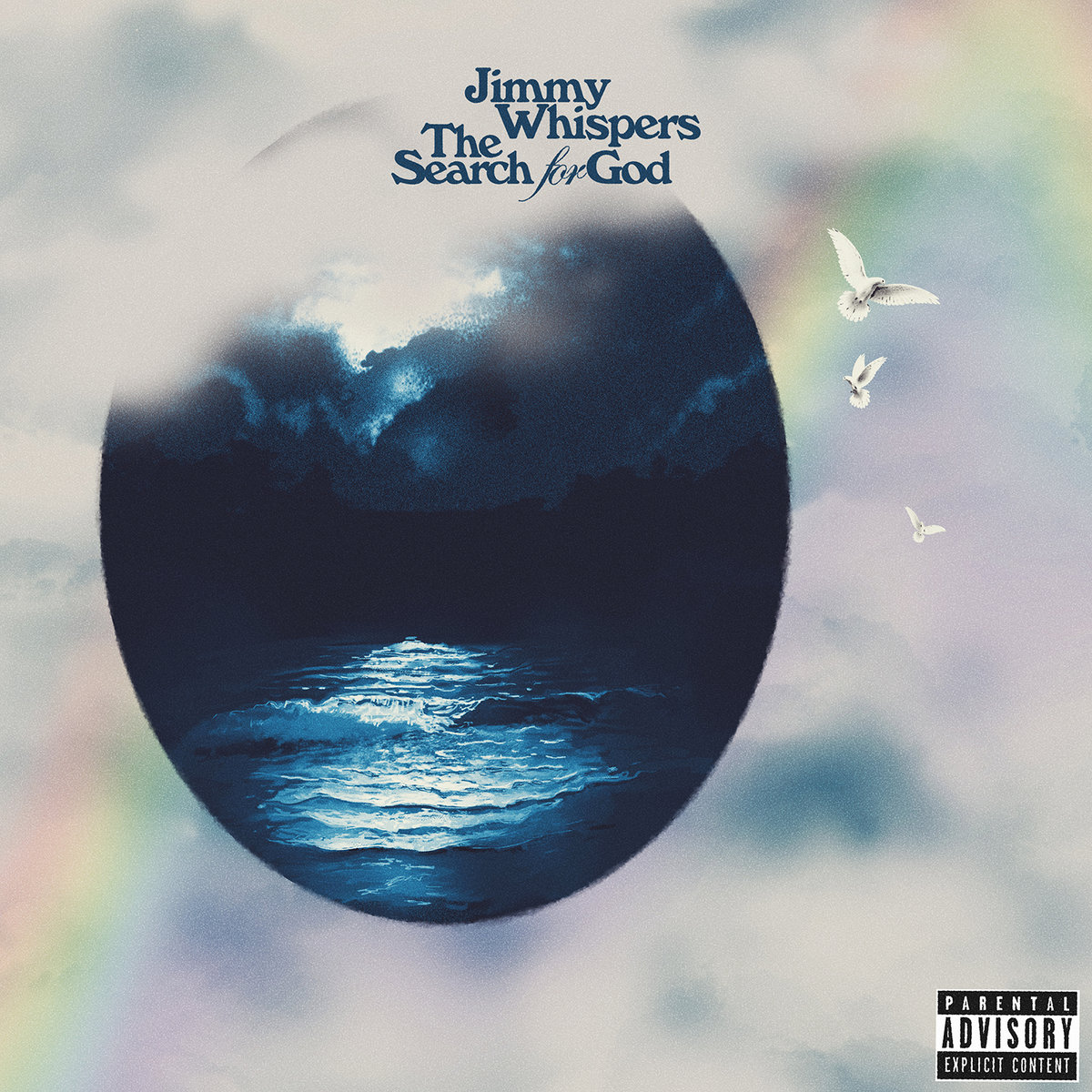Jimmy Whispers
The Search for God
CARPARK
I sometimes see people online, usually older, asking why there aren’t more protest songs these days the way there were back in the hippie era. I think there are a number of reasons, including the fractured media landscape and the fact that we’ve all seen exactly how effective the Boomer protest songbook was at stopping racism, environmental destruction, and the other assorted apocalypses they supposedly conquered back in the day.
But I think the main reason is that pop music just isn’t cut out to handle the scale of the problems we’re facing right now. Writing a catchy song about millions of people dying in a pandemic or the collapse of vital global ecosystems seems like shooting a BB gun at a charging bull. Instead, pop’s retreated to doing what it does best: escapism, which is currently available in a dazzling rainbow of flavors, from the nitrous rush of hyperpop, to the mind-numbing thump of hardcore techno, to the good-vibes-only choogle of neo-Deadheadism.
Jimmy Whispers makes twinkly, pretty, infinitely catchy pop songs that sound like the epitome of bubblegum escapism. But it only takes about 15 seconds into his new album, The Search for God, for the real world, in all of its harsh reality, to intrude on the vibe, as the opener “Ice Cream Truck”—which is sweet and hooky enough to work as actual ice cream truck music—shifts into a gleeful “fuck those cops” tirade that brings back the spirit of the long, hot summer of 2020. Elsewhere on his first album since his 2015 debut there are fires, despair, suicide attempts. The lead single is just called “Hellscape.” “This is real life,” it goes. “This is happening.”
But Jimmy isn’t trying to save the world—or at least not all of it at once. Over the course of 10 songs in 15 all-too-brief minutes, the LA freak-pop scene stalwart paints our most pressing existential issues less as problems demanding to be tackled head-on, and more as simple facts of life in America in 2023, the man-made horrors of our everyday existence. The focus of The Search for God is a much different fight: the one for our souls.
It’s a corny prospect, but Jimmy’s never shied away from corniness. Back in his early days, when his shows were beer-drenched performance art pieces that married the self-destructive energy of Darby Crash to the naive idealism of a big-hearted six-year-old, they usually culminated in Jimmy putting Louis Armstrong’s “What a Wonderful World” on over the PA and running around the crowd pushing couples together to slow dance.
The new album’s title is sincere, but slightly misleading. Jimmy’s already found God. The Search for God is actually about your search, the one you might not be aware you’re embarking on, the one Jimmy is ready to take you on as guide, cheerleader, and eccentric street-level theologian, pointing out God in the love between people, in the higher power of recovery, in stray dogs roaming the LA streets.
Can a handful of 90-second pop songs really bring about the kind of world-shaking spiritual experience that finding God entails? To be honest, maybe. Jimmy’s a deceptively clever songwriter, and his quasi-faux-naïf persona masks years of intensive study into the art of the perfect hook. He can cut deep with just a few lines and a sprinkling of synthesizer arpeggios. “Stray Dogs” rockets into stratospheric bubblegum transcendence in a matter of seconds, then before you can even catch your bearings it drops you straight into the blissfully chill title track.
Over and over again, one flawlessly crafted little song lifts you up and passes you quickly to the next, before the album peaks with “Hellscape,” a song that would be pretty enough to make me cry even without its devastatingly profound lyrics, which capture the fleeting beauty of existence in a world of suffering with the simple grace of a master haiku. In just a few minutes he holds you close, soothes your anxieties, and cracks your heart open to the love that’s all around you. If that’s not God, I don’t know what is.









